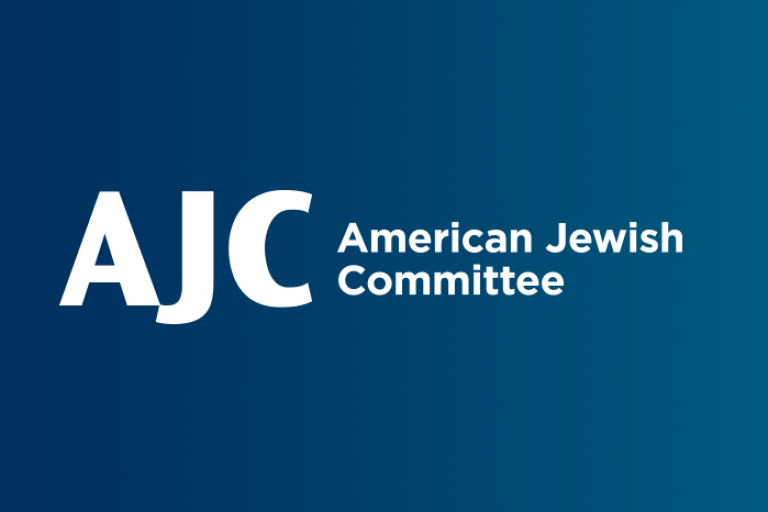By ACCESS DC Leaders Jaclyn Blumenfeld and Dan Hyman
When telling friends and family about the AJC trip to Japan sponsored by the Japanese foreign ministry, the common response was “Jews in Japan?” followed by “but, why?” After 10 days in this enchanting country learning about Japan’s international relations and experiencing its vibrant culture, we feel grateful to have been part of this mission, especially during what we now understand to be an exciting time for the evolving relationship between Japan, Israel, and the Jewish community.
Our first day was packed with diplomatic and educational meetings. We met with the Japanese State Minister of Foreign Affairs – equivalent to the U.S. Deputy Secretary of State, the Japanese Foreign Ministry’s Middle East Division Director, and the Israeli Ambassador to Japan. Each meeting was held in contrasting cultural styles, ranging from the more formal Japanese decorum to the casual charm and directness of Israeli diplomacy. We learned about how Japan views the Arab-Israeli conflict, putting an emphasis on stability, support for a two-state solution, and promoting economic development.
Both Japanese and Israeli officials repeatedly stressed the unique sense of opportunity for the bilateral relationship, especially with discussions of a possible free trade agreement underway. A particularly resonant description of the moment came from the Israeli Ambassador, who used the Japanese term “sakura,” meaning cherry blossom blooming, as a metaphor representing this time of optimism and opportunity. Israel is launching its first direct flight to Japan in March 2023 (something Israeli friends excitedly say has been a long time coming). And we learned of how the potential free trade agreement could bolster closer cooperation in the defense, transportation, infrastructure, and technology sectors. As Japan considers its regional security in the context of a rising China and its regional economic position in the context of a growing South Korea, the significance of Japan-Israel relations for defense cooperation and trade came into greater focus.
In the seaside port of Tsuruga, we toured the Port of Humanity Museum that recounts the parallel stories of Polish child refugees in the 1920s and Jewish refugees in the 1940s, both of whose lives were saved by their passage through this pivotal Japanese port. The museum recounts the uplifting story of Chiune Sugihara, a Japanese diplomat who risked his job – and his life – to issue transit visas to thousands of Jewish refugees fleeing the Holocaust. It was fascinating to see how Japan in general, and the city of Tsuruga in particular, embrace this sense of communal responsibility and kindness. We were awed by how Tsuruga’s Mayor and so many townspeople came out to welcome our group with clapping and cheering, an indication that Tsuruga continues to value its role as a friend to the Jewish People and a positive force in the world.
At Doshisha University, a prestigious private university in Kyoto, we met students and professors taking an impressive array of Jewish studies and Israel-focused coursework ranging from biblical history to modern-day military service in Israel. We were fascinated by their interest in studying comparative religions and especially Abrahamic religions, as Buddhism and Shintoism are the country’s predominant religions. A unique feature of the Japanese educational system is that students can study subjects unrelated to their professions before embarking on career tracks that provide on-the-job training. This flexibility allows for 200-300 students annually to explore Jewish studies courses at Doshisha. We were surprised by the strong desire these Japanese students have to visit Israel, yet the cost of doing so is a barrier for many; scholarships and travel opportunities are hard to come by.
Our trip wrapped up with a memorable Shabbat at the Jewish Community Center of Tokyo, giving us a glimpse into the make-up of the local Jewish community, which included expats from the U.S. and Europe, blended Jewish-Japanese families, and stragglers passing through for a kosher meal (imported all the way from Australia). What a great way to reflect on our own unique Jewish-American experiences from across the US, our newly formed friendships within the AJC group, and our newly acquired appreciation of Japanese culture and diplomacy. For one Shabbat, we savored the warm welcome of Tokyo’s Jewish community and nearly doubled the Jewish population of Japan!
A trip that began with a question of “why Japan?” ended with many answers. We gained a greater awareness of Japan’s history as a friend to the Jewish people and its role today as a steadfast US ally and budding partner to Israel. We also experienced Japan as a country rooted in an ancient past yet thriving with a vibrant, modern society (much like Israel). From the close relationships that developed between AJC participants and Japanese counterparts to the experiences we shared in one of the world’s richest cultures, we are grateful to have joined this remarkable mission from the AJC to Japan.

